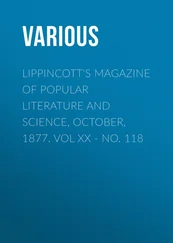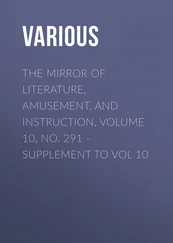Isaac Disraeli - Curiosities of Literature (Vol. 1-3)
Здесь есть возможность читать онлайн «Isaac Disraeli - Curiosities of Literature (Vol. 1-3)» — ознакомительный отрывок электронной книги совершенно бесплатно, а после прочтения отрывка купить полную версию. В некоторых случаях можно слушать аудио, скачать через торрент в формате fb2 и присутствует краткое содержание. Жанр: unrecognised, на английском языке. Описание произведения, (предисловие) а так же отзывы посетителей доступны на портале библиотеки ЛибКат.
- Название:Curiosities of Literature (Vol. 1-3)
- Автор:
- Жанр:
- Год:неизвестен
- ISBN:нет данных
- Рейтинг книги:3 / 5. Голосов: 1
-
Избранное:Добавить в избранное
- Отзывы:
-
Ваша оценка:
- 60
- 1
- 2
- 3
- 4
- 5
Curiosities of Literature (Vol. 1-3): краткое содержание, описание и аннотация
Предлагаем к чтению аннотацию, описание, краткое содержание или предисловие (зависит от того, что написал сам автор книги «Curiosities of Literature (Vol. 1-3)»). Если вы не нашли необходимую информацию о книге — напишите в комментариях, мы постараемся отыскать её.
Curiosities of Literature (Vol. 1-3) — читать онлайн ознакомительный отрывок
Ниже представлен текст книги, разбитый по страницам. Система сохранения места последней прочитанной страницы, позволяет с удобством читать онлайн бесплатно книгу «Curiosities of Literature (Vol. 1-3)», без необходимости каждый раз заново искать на чём Вы остановились. Поставьте закладку, и сможете в любой момент перейти на страницу, на которой закончили чтение.
Интервал:
Закладка:
Vendre et acheter benefices;
Les enfans en bras des Nourices
Estre Abbés, Eveques, Prieurs,
Chevaucher tres bien les deux soeurs,
Tuer les gens pour leurs plaisirs,
Jouer le leur, l'autrui saisir,
Donner aux flatteurs audience,
Faire la guerre à toute outrance
Pour un rien entre les chrestiens!
And you really trouble yourself about this?
Oh, World! you do not trouble yourself about Seeing those impudent rascals Selling and buying livings; Children in the arms of their nurses Made Abbots, Bishops, and Priors, Intriguing with girls, Killing people for their pleasures, Minding their own interests, and seizing on what belongs to another, Lending their ears to flatterers, Making war, exterminating war, For a bubble, among Christians!
The World takes leave of his physician, but retains his advice; and to cure his fits of melancholy gives himself up entirely to the direction of his fools. In a word, the World dresses himself in the coat and cap of Folly , and he becomes as gay and ridiculous as the rest of the fools.
This Sottie was represented in the year 1524.
Such was the rage for Mysteries, that René d'Anjou, king of Naples and Sicily, and Count of Provence, had them magnificently represented and made them a serious concern. Being in Provence, and having received letters from his son the Prince of Calabria, who asked him for an immediate aid of men, he replied, that "he had a very different matter in hand, for he was fully employed in settling the order of a Mystery— in honour of God ."99
Strutt, in his "Manners and Customs of the English," has given a description of the stage in England when Mysteries were the only theatrical performances. Vol. iii, p. 130.
"In the early dawn of literature, and when the sacred Mysteries were the only theatrical performances, what is now called the stage did then consist of three several platforms, or stages raised one above another. On the uppermost sat the Pater Cœlestis , surrounded with his Angels; on the second appeared the Holy Saints, and glorified men; and the last and lowest was occupied by mere men who had not yet passed from this transitory life to the regions of eternity. On one side of this lowest platform was the resemblance of a dark pitchy cavern, from whence issued appearance of fire and flames; and, when it was necessary, the audience were treated with hideous yellings and noises as imitative of the howlings and cries of the wretched souls tormented by the relentless demons. From this yawning cave the devils themselves constantly ascended to delight and to instruct the spectators:—to delight, because they were usually the greatest jesters and buffoons that then appeared; and to instruct, for that they treated the wretched mortals who were delivered to them with the utmost cruelty, warning thereby all men carefully to avoid the falling into the clutches of such hardened and remorseless spirits." An anecdote relating to an English Mystery presents a curious specimen of the manners of our country, which then could admit of such a representation; the simplicity, if not the libertinism, of the age was great. A play was acted in one of the principal cities of England, under the direction of the trading companies of that city, before a numerous assembly of both sexes, wherein Adam and Eve appeared on the stage entirely naked, performed their whole part in the representation of Eden, to the serpent's temptation, to the eating of the forbidden fruit, the perceiving of, and conversing about, their nakedness, and to the supplying of fig-leaves to cover it. Warton observes they had the authority of scripture for such a representation, and they gave matters just as they found them in the third chapter of Genesis. The following article will afford the reader a specimen of an Elegant Morality .
LOVE AND FOLLY, AN ANCIENT MORALITY.
Table of Contents
One of the most elegant Moralities was composed by Louise L'Abé; the Aspasia of Lyons in 1550, adored by her contemporaries. With no extraordinary beauty, she however displayed the fascination of classical learning, and a vein of vernacular poetry refined and fanciful. To accomplishments so various she added the singular one of distinguishing herself by a military spirit, and was nicknamed Captain Louise. She was a fine rider and a fine lutanist. She presided in the assemblies of persons of literature and distinction. Married to a rope-manufacturer, she was called La belle Cordière , and her name is still perpetuated by that of the street she lived in. Her anagram was Belle à Soy .—But she was belle also for others. Her Morals in one point were not correct, but her taste was never gross: the ashes of her perishable graces may preserve themselves sacred from our severity; but the productions of her genius may still delight.
Her Morality, entitled "Débat de Folie et d'Amour—the Contest of Love and Folly ," is divided into five parts, and contains six mythological or allegorical personages. This division resembles our five acts, which, soon after the publication of this Morality, became generally practised.
In the first part, Love and Folly arrive at the same moment at the gate of Jupiter's palace, to join a festival to which he had invited the gods. Folly observing Love just going to step in at the hall, pushes him aside and enters first. Love is enraged, but Folly insists on her precedency. Love , perceiving there was no reasoning with Folly , bends his bow and shoots an arrow; but she baffled his attempt by rendering herself invisible. She in her turn becomes furious, falls on the boy, tearing out his eyes, and then covers them with a bandage which could not be taken off.
In the second part, Love , in despair for having lost his sight, implores the assistance of his mother; she tries in vain to undo the magic fillet; the knots are never to be unloosed.
In the third part, Venus presents herself at the foot of the throne of Jupiter to complain of the outrage committed by Folly on her son. Jupiter commands Folly to appear.—She replies, that though she has reason to justify herself, she will not venture to plead her cause, as she is apt to speak too much, or to omit what should be said. Folly asks for a counsellor, and chooses Mercury; Apollo is selected by Venus. The fourth part consists of a long dissertation between Jupiter and Love , on the manner of loving. Love advises Jupiter, if he wishes to taste of truest happiness, to descend on earth, to lay down all his majesty, and, in the figure of a mere mortal, to please some beautiful maiden: "Then wilt thou feel quite another contentment than that thou hast hitherto enjoyed: instead of a single pleasure it will be doubled; for there is as much pleasure to be loved as to love." Jupiter agrees that this may be true, but he thinks that to attain this it requires too much time, too much trouble, too many attentions—and that, after all, it is not worth them.
In the fifth part, Apollo, the advocate for Venus, in a long pleading demands justice against Folly . The Gods, seduced by his eloquence, show by their indignation that they would condemn Folly without hearing her advocate Mercury. But Jupiter commands silence, and Mercury replies. His pleading is as long as the adverse party's, and his arguments in favour of Folly are so plausible, that, when he concludes his address, the gods are divided in opinion; some espouse the cause of Love , and some, that of Folly . Jupiter, after trying in vain to make them agree together, pronounces this award:——
Читать дальшеИнтервал:
Закладка:
Похожие книги на «Curiosities of Literature (Vol. 1-3)»
Представляем Вашему вниманию похожие книги на «Curiosities of Literature (Vol. 1-3)» списком для выбора. Мы отобрали схожую по названию и смыслу литературу в надежде предоставить читателям больше вариантов отыскать новые, интересные, ещё непрочитанные произведения.
Обсуждение, отзывы о книге «Curiosities of Literature (Vol. 1-3)» и просто собственные мнения читателей. Оставьте ваши комментарии, напишите, что Вы думаете о произведении, его смысле или главных героях. Укажите что конкретно понравилось, а что нет, и почему Вы так считаете.












